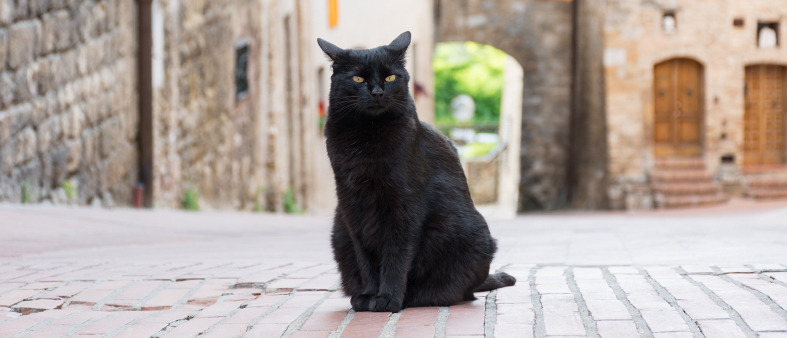
Italy – Home to Many Weird and Wonderful Superstitions
Italians are superstitious; it’s no secret. This article will explore this whimsical universe on the cusp of witchcraft and religion.
We can all be superstitious sometimes, regardless of culture. Perhaps, before an exam, we always wear that lucky shirt. Or before a date, we like to bring along a lucky charm, just in case.
Italians, however, take it up a notch––as with everything we do. We are very scaramantici (superstitious) and try to avoid things that could portare male or portare sfiga (bring bad luck) as much as possible.
Non è vero, ma ci credo. (It’s not true, but I believe it)
This was the title of a 1942 comedy play written by Peppino de Filippo, which was made into a movie ten years later––you can find it on YouTube.
It perfectly reflects the average Italian’s relationship to superstitions. We might not rationally buy into them, but non si sa mai (you never know). Why risk it?
Whether we’re walking around the city, sitting at the table with friends and family, or relaxing at home, the supernatural is always present for us Italians, and we must be careful to avoid certain gross mistakes and appease fate.
The 14 Most Important Italian Superstitions
1. Opening an umbrella in a closed environment:
Ah! Sacrilegious. It doesn’t matter if it’s raining cats and dogs (piovendo a catinelle). It’s serious bad luck. If you do it, either someone will tirarti un occhiataccia (give you a dirty look) or tell you to close it and open it outside.
Supposedly, this superstition comes from Ancient Roman times, when doing so was considered an insult to the Sun god. It also signifies financial issues, as umbrellas were used in poor households to keep out the rain when there was a hole in the ceiling.
2. Walking under a ladder (Passare sotto alla scala)
Italians don’t walk under ladders, and that’s a simple fact. We just avoid them like the plague, as it’s bad luck. So if you see someone walking under a ladder, you can rest assured they’re not Italian.
This belief took root because it’s generally thought that an open ladder looks like a triangle, a symbol of the holy trinity, Padre, Figlio e Spirito Santo (Father, Son, and Holy Spirit). Therefore, walking underneath is a sign of disrespect and defiance towards God.
3. Sweeping a single woman’s feet (Passare la scopa)

This one is quite patriarchal, indeed. In Italy––which is probably not the most progressive country, after all––passing a broom over an unmarried woman’s feet means that they’ll not marry. If you’re female in Italy, it is not unusual to hear someone ask you to alzare i piedi che sennò non ti sposi (pull up your feet; otherwise, you’ll not marry). A woman who touched her own feet while sweeping was considered a poor housekeeper in the past. Maybe we should just throw this one out of the window, shall we?
4. The broken mirror (Lo specchio rotto)
This one is awful, really. To be exact, seven years of bad luck (sette anni di sfortuna/sfiga). And if the mirror breaks on its own, someone dear might die. If a mirror breaks next to someone’s portrait, well, their days might be numbered, according to the superstition.
A mirror is a powerful object replete with magical powers in Italian culture, almost acting as a person’s “double.” So, what happens to the mirror, happens to the person.
5. The black cat (Il gatto nero)
If a black cat crosses an Italian’s path, they will likely turn the other way or take another route just to avoid the feline. The origin of this superstition dates to the Middle Ages. Because horses often only see the reflecting yellow eyes of a black cat, if one crosses a carriage’s path, the horses could spook and derail the carriage. Of course, this usually didn’t go well for the passengers and driver either.
6. Putting a hat on the bed (Mettere il cappello sul letto)
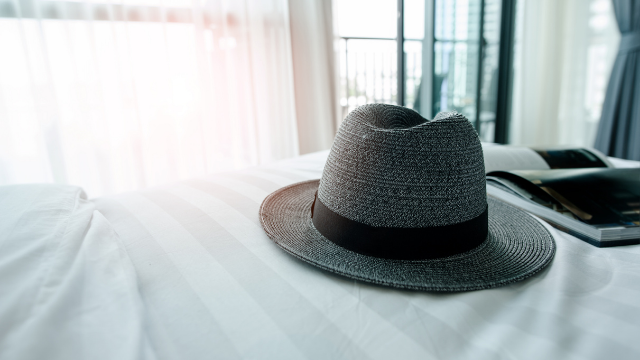
This is bad luck for all those who sleep in the bed––even when it’s you! In years past, a doctor or priest would take their hat off and put it on the bed to signal that someone was on the brink of death.
7. Saying In bocca al lupo vs. Buona fortuna
If you travel to Italy or know an Italian, you might have heard the words in bocca al lupo––which literally translates to “in the mouth of the wolf.” Italians use this when wishing good luck to someone, and the receiver should always respond with crepi il lupo, which means “death to the wolf.” Buona fortuna, which means “good luck,” is not used, as it… brings bad luck. Go figure!
8. Il malocchio (the evil eye)
“Occhio, Malocchio, Prezzemolo e Finocchio” is the title of an Italian movie with Lino Banfi that spoofs the Italian superstition of malocchio, the evil eye.
If you enter the word malocchio in Italian Google, you’ll find many articles discussing what it is, how to determine if someone did it to you, and its antidotes. So clearly, this belief is still alive and well. But what is the malocchio? Well, it means that someone cursed you with an evil eye, or a malevolent glare, usually because they’re envious.
9. Venerdì 17
There’s even a word for it: “heptadecaphobia,” which means the fear of the number 17. I know, insane.
Friday the 17th is a particularly unlucky number, as it is associated with two bad things: Friday, the day that Jesus died, and the number 17. 17 is unlucky for many reasons––including the biblical flood, which happened on the 17th day in the Genesis. The smorfia napoletana––a book that associates lottery numbers with words, connotes the number 17 with misfortune.
10. Touching iron (Toccare ferro)
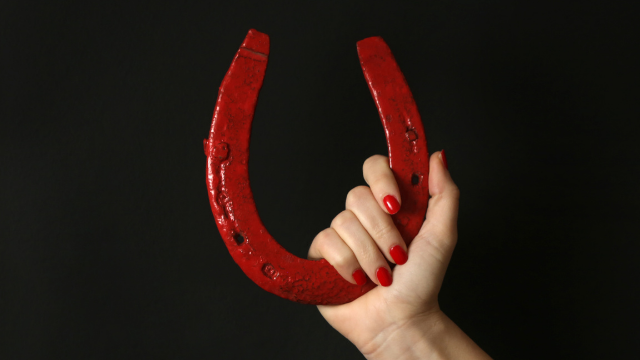
Toccare ferro (touching iron) is an abbreviation for toccare un ferro di cavallo (touching a horseshoe). This ritual is done to avoid possible misfortune. However, you don’t have to touch an actual horseshoe; anything iron-made is fine.
11. It’s bad luck to say “Happy Birthday” before the date
Wishing buon compleanno or tanti auguri (happy birthday) before the date is bad luck. Why? It’s not entirely clear, but it’s believed to be a jinx. So always remember to wish an Italian happy birthday on the day of their birth, and not earlier.
Italian Superstitions at the Table (Superstizione a tavola)
By now, you probably understood that superstitions are pretty ingrained in Italian culture. So, of course, mealtimes have not been spared from potential misfortune, and superstitious ritual behaviors are now almost considered good manners. These are some of the most widespread food-related superstitions to look out for.
12. Brindare (Toasting)
When you’re toasting (brindare) with Italians, make sure to always look at them in the eye in addition to saying cin cin. It might feel awkward to keep their gaze, but it’s considered ill-mannered to look away from people when you toast.
Why? Because it looks, well… shady. In fact, this superstitious tradition comes from the numerous deaths by poisoning that happened at court in ancient times. While everyone toasted, someone poured poison in the glass of an unsuspecting victim. Make eye contact if you don’t want to look like a traitor.
13. Tredici a tavola (thirteen at the table)
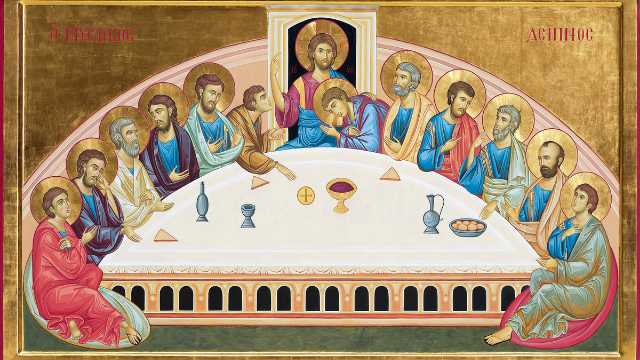
You’ll probably start thinking that Italians are quite paranoid at the table after these last two superstitions––as well as all the others, of course. But according to Italian superstitions, it is important to avoid seating 13 people at your table.
This superstition has religious roots. As you might know, during the last supper, Jesus was sitting with 13 people, including Judas Iscariot––who doesn’t need any introductions.
If you’re sitting with 13 people, watch your back, and make sure that everyone is looking at you while toasting!
14. Spilling oil and salt
Always be careful when you’re using oil and salt. If they spill, it’s bad luck!
Like many other Italian superstitions, this one comes from Ancient Roman times, when oil and salt were considered extremely valuable commodities. In fact, the word salario (salary) comes from sale (salt), since in ancient times people were paid for their work with a ration of salt.
Thus, throwing away salt was like throwing away money. If it falls, don’t forget to take a pinch, and throw it behind your shoulders. That should do the trick and avoid the possibly nefarious consequences of your oversight.
You might feel overwhelmed now. But remember that you can counteract these potentially tragic mishaps, too!
How to Get Rid of Bad Luck and Reverse a Jinx
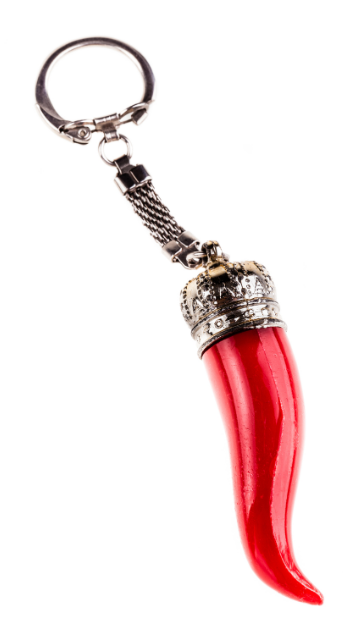
Good luck gestures to reverse a jinx, such as fare le corna (doing the horns), toccare ferro, carrying around a cornetto (a little horn), grattarsi (scratching your genitalia), and hanging some red chili peppers at your doorstep should do the trick!
What are the most die-hard superstitions in your culture? And are there as many as in Italy?
2 Comments for "14 Italian Superstitions: Hats, Cats and Evil Eyes"
My Italian grandfather always said it was bad luck to sing at the dinner table, otherwise you would end up with a crazy spouse. Anyone else familiar with that?
I never heard of that one, but it’s quite funny, haha!
I just found this saying, though: “Chi canta a tavola e a letto, è un matto perfetto.” If you translate it, it basically says that “who sings at the table and in the bed is crazy.”
I’m not entirely sure why that is, but the “Galateo”—which is a treaty on proper etiquette written in the 1500s by Giovanni Della Casa—advised against singing at the table because it’s bad manners.
You can find the Wikipedia page here, https://it.wikipedia.org/wiki/Galateo_(costume), but the English page sends to “Etiquette,” which is not the same. This is typically Italian! 🙂